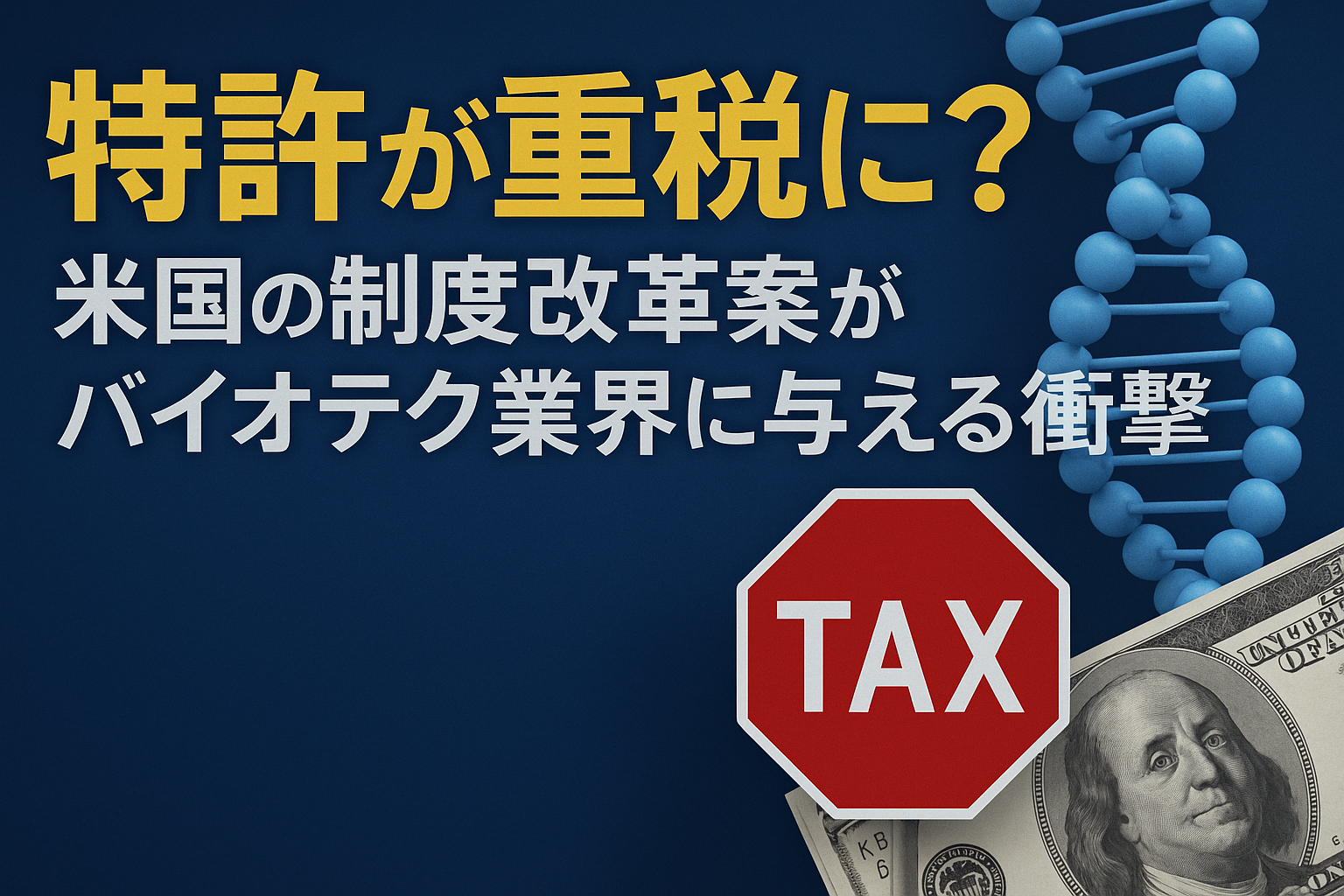A sweeping reform proposal under consideration by the U.S. Department of Commerce is sending ripples through the biotechnology industry. The plan would shift the 235-year-old patent system from a flat-fee model to a new structure that imposes a 1–5% levy on the value of each patent. If implemented, this could effectively become a “property tax” on intellectual property—posing a serious threat to biotech companies that invest vast sums in research and development.
Outline of the Reform: A New Model for IP-Based Fees
According to The Wall Street Journal, the U.S. Department of Commerce is exploring a new system that would charge patent holders 1% to 5% of the patent’s value. Proposed as part of a broader effort to reduce the federal deficit, the scheme could generate tens of billions of dollars in additional revenue.
Under the current system, patent holders pay relatively modest maintenance fees. The new model would mark a fundamental shift—from a fixed-cost system to a value-linked model—where the greater the profits generated by a patent, the heavier the financial burden.
Severe Implications for Biotech Companies
This proposal would hit pharmaceutical and biotech firms particularly hard. Developing a new drug can take over a decade and cost hundreds of billions of yen, and such efforts are protected by extensive patent portfolios. If maintaining these patents becomes significantly more expensive, it could directly constrain funding for innovation.
Indeed, the SPDR S&P Biotech ETF (XBI) fell 1.1% following the report, and major firms like Pfizer (PFE) also saw stock declines—evidence that investors are beginning to recognize a new kind of financial risk.
Reform or Tax? A Question of Fairness
While this proposal could be viewed as a “tax on intellectual property,” others see it as a corrective measure against excessive profit structures built around patents. Amid growing criticism of high drug prices from big pharma, scrutiny of the patent system is intensifying.
However, reforms that place pressure on the sources of innovation could compromise long-term technological competitiveness in exchange for short-term revenue. A well-balanced and thoughtful debate is essential.
Future Outlook and Implications for Japanese Companies
As of now, the proposal remains at the discussion stage, and its actual implementation is uncertain. Still, if such a system is adopted in the U.S., it will undoubtedly influence global patent policy.
Many Japanese pharmaceutical and biotech firms hold patents in the U.S., meaning they could also be impacted by increased costs. Moreover, in an era where IP policy is closely tied to global competitiveness, Japan may also need to reassess the design of its own patent system.
Changes to the patent system are not merely administrative—they strike at the heart of innovation and represent critical economic and political decisions. Taxing intellectual property risks sacrificing long-term growth strategies for short-term fiscal gains. For the biotech industry and all stakeholders involved in IP strategy, this latest development is a serious and urgent signal that cannot be ignored.

